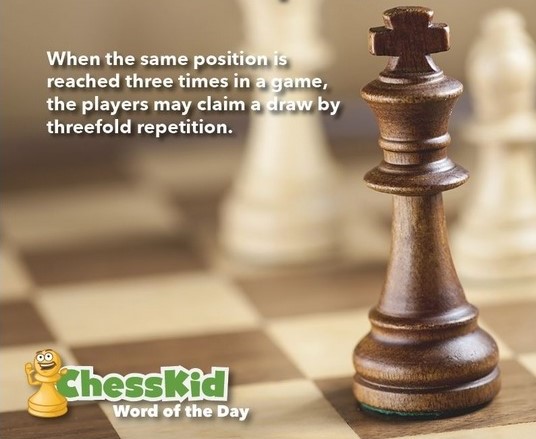It is my understanding that the USCF expresses that if a player has less than 5 minutes in a 30+0 game, neither the player nor his/her opponent have the obligation to continue with chess notation.
If players are not writing their moves can they claim a draw using the threefold repetition rule in an USCF or FIDE 30+0 chess tournament?
Do the arbiters have the obligation to write the moves when players are not doing it?
If the arbiter notices that a position has been repeated three times should they intervene if the players do not claim a draw?
What do the USCF and FIDE rules express about these situations?
P.S. What Is The Threefold Repetition In Chess? The threefold repetition rule states that if a game reaches the same position three times, a draw can be claimed. A position is repeated if all pieces of the same kind and color are on identical squares, and all possible moves are the same.
I found a similar question: What are the different rules for claiming a draw?
However, that was several years ago. Also, I am interested in specific in 30+0 games.
Update: USCF rules are available online for free
Here is the link:
Update for USCF: 14K. Director declares draw for lack of progress.
If one or both of the following occur(s) then the TD may declare the game drawn:
- The same position has appeared, as in 14C, for at least five consecutive alternate moves by each player.
- Any consecutive series of 75 moves have been completed by each player without the movement of any pawn and without any capture. If the last move resulted in checkmate, that shall take precedence
Update for USCF: 14F4. Director may count moves in sudden death. In sudden death, a player with fewer than five minutes remaining and a simplified position in which no pawn moves or captures seem likely may stop both clocks, declare to a director an intention to invoke the 50-move rule when possible, and ask for assistance in counting moves. A director who agrees this is appropriate may count moves or use a deputy or a clock with a move counter to do so. a. If the director or the deputy will count moves, the count should begin by crediting moves already made and listed on the scoresheet of the player intending to claim. An opponent who believes a different number of moves have been made should present this case if and when the count reaches 50. b. The director or deputy may either keep score, make check marks, or combine the two. c. After the count by the director or deputy begins, neither player has a right to know the count until 50 moves are reached. At that point the game is declared drawn unless the opponent successfully challenges the move count. d. The opponent may challenge either the moves on the claimant’s scoresheet before the director/deputy count, the count itself, or both, but must have a scoresheet adequate (13C7) to support the challenge. e. If the challenge is upheld, the game shall continue with the director or deputy resuming from the corrected count. If the claimant’s scoresheet is responsible for the wrong count, two minutes shall be added to the remaining unused time of the claimant’s opponent. If the director/deputy count was wrong, there shall be no time adjustment. f. The director may insert a clock with a move counter that shows the remaining time of both players, set the move counter to zero, and order play to resume. When the clock indicates that both sides have completed 50 further moves, either player may claim a draw. If this method is used, the director should inform the players that if a move is erroneously not counted or double counted, the players should stop the clock and notify the director.

